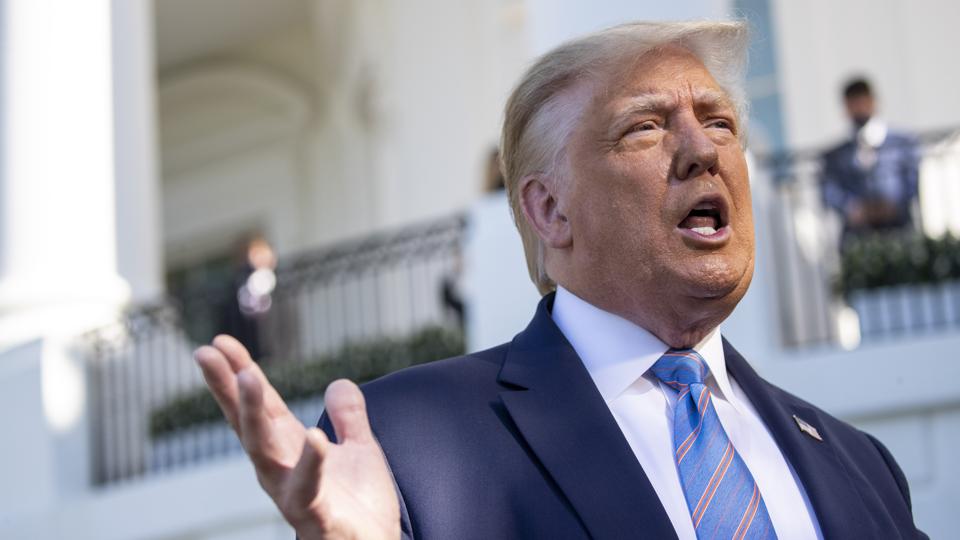TOPLINE
President Trump on Wednesday promised U.S. suburban residents that the value of their homes would not be impacted by crime or the construction of low-income housing after an Obama-era rule designed to limit housing segregation was ended last week, the culmination of years of deregulation effort by Trump and a reported appeal to suburban voters.

President Trump celebrated the end of an Obama-era rule Wednesday.
ASSOCIATED PRESS
KEY FACTS
Trump tweeted early Wednesday afternoon:
“Your housing prices will go up based on the market, and crime will go down. I have rescinded the Obama-Biden AFFH Rule. Enjoy!” Trump added.
Trump is referencing the 2015 Affirmatively Further Fair Housing rule, which President Obama implemented to fight housing discrimination.
The rule required local governments receiving federal housing funds to create plans that would combat housing discrimination, which advocates said helped strengthen the 1968 Fair Housing Act.
Housing Secretary Ben Carson appears to have begun revoking the AFFH rule as of July 23, according to a press release, which means Trump’s tweets came six days after the fact
Carson called the AFFH rule “complicated, costly and ineffective,” and touted the Trump administration’s “opportunity zone” initiative, which provides discounts on capital gains taxes for investors sending money into one of over 8,000 designated areas.
Opportunity zones have been criticized by Congress as a means of profit for wealthy real estate developers—including some tied to the current administration.
Chief critics
Social media outcry over Trump’s tweets began almost immediately, which users described as anti-BIPOC. “Trump is a racist idiot,” tweeted Chicago Alderman Carlos Ramirez-Rosa. Leah Greenberg, executive director of Congressional activist group Indivisible Team, called Trump’s tweets “an active campaign for housing segregation.”
Key background
Trump’s tweets come amid decreased suburban support for his November reelection campaign, CNBC reported. The AFFH rule would effectively encourage communities to build more apartments, NPR reported, which would in turn encourage smaller wage earners to move to those areas. The rule did not, however, specifically target suburbs. The Trump administration gutted AFFH in 2018, and Carson had previously criticized the rule during a 2017 hearing. According to the New York Times, Trump’s opportunity zones were enacted as part of his signature tax cuts in 2017. The Times reported in November 2019 that while some money went to more depressed areas in Pennsylvania and Alabama, the lion’s share has appeared in rapidly-gentrifying cities like Atlanta, Houston and Miami.
Tangent
In 1973, the Justice Department filed a civil rights case against Trump’s company, accusing him of violating the Fair Housing Act by not renting to Black tenants. The case was settled in 1975, with Trump signing an agreement that his company would not discriminate against future tenants or homebuyers, as well as place ads informing minorities of their rights to obtain housing at his properties. At the time, Trump said the settlement did not mean he admitted to any wrongdoing, while the DOJ celebrated it as “one of the most far-reaching” agreements it had negotiated.
Further reading
Trump tells suburban voters they will ‘no longer be bothered’ by low-income housing (CNBC)
Seeking Suburban Votes, Trump To Repeal Rule Combating Racial Bias In Housing (NPR)
Lawmakers Increase Criticism of ‘Opportunity Zone’ Tax Break (New York Times)
Inside the government’s racial bias case against Donald Trump’s company, and how he fought it (Washington Post)
